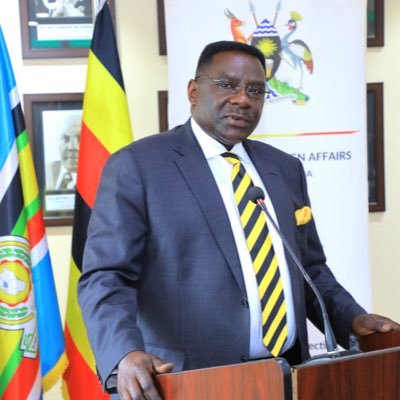By Amb Henry Mayega
The proprietary responsibility of the Yoweri Museveni administration to, among others and since 1986, restore the rule of law, deepen the role of the judiciary in dispensing justice as well as distinctively bring the third arm of government to the fore of national building couldn’t have been on display more than when this President inaugurated the twin homes for the Supreme Court of Uganda (SCOU) and Court of Appeal (COA) on April 18, 2024.
The restoration of Uganda into the international files of honour by this administration has, since 1986, ensured many judicial related benefits amongst others – forget about the grim reapers’ unpalatable suggestions against the country’s best President since independence.
Firstly, this administration established the SCOU in 1987 and entrenched the COA/Constitution Court via the 1995 Constitution – an intermediary between the SCOU and the High Court. Two other positions were simultaneously created namely: Deputy Chief Justice and Principal Judge in order to further smoothen judicial serviceability. Those actions, in essence, epitomized the roles of those three layers of the temples of justice and brought with them incalculable amounts of national joy, pride as well as completeness of the judicial structure in the country.
That completeness as authored by this administration is the reason for the elimination of the pre-1986 judicial gridlocks that pitted the position of Chief Justice against the High Court head – a matter that was often an inscrutable smirk for the regimes that ruled Uganda before its renaissance in 1986.
Secondly, like all other arms of government, Uganda’s judiciary was affected by the insecurities of the 1970s and part of the 1980s. The crème de la crème of legal minds left the country in droves either to seek for greener pastures or escape the butchery during, most especially, Idi Amin’s regime of the 1970s. That meant a couple of things among them: one, the escape stifled the recruitment of the best into the judiciary and furthermore, therefore, the arm still-birthed as a result. That haemorrhage was repudiated after 1986. The judiciary has now fully rebounded.
The country will never forget the gruesome murder of Ben Kiwanuka, the then Chief Justice but also formally Uganda’s first Prime Minister by the Idi Amin regime in September, 1972. Pogroms were the order of the day targeting most especially the political elite even for lack of sympathy for the regime let alone its reign of terror.
Thirdly, whereas both the colonizers and the immediate post-independence rulers of Uganda kneecapped their heretics many times through draconian legal entrapments, this administration, with enough gas in its tank to thoroughly disappoint its critics, cured an endemic anomalous situation where the executive, in the pre-1986 looked at the judiciary with disdain and suspicion and employed antiquated pieces of legislation on our law books to target the opposition. The President would, in the pre-1986 period, also solely appoint judicial officers.
This administration put in place the Judicial Service Commission in accordance with the 1995 Constitution whose mandate it is to recruit and regulate the conduct of judicial officers.
Fourthly, the Yoweri Museveni administration, through the 2006 Local Government Courts Act, created the Local Council Courts in Uganda at the village (LC1), parish (LC2), town (LC3), division (LC4) and sub-county (LC5) levels. Those courts are overseen, in terms of functioning, by the Ministry of Local Government and supervised by the Chief Magistrate Courts on behalf of the High Court.
The Local Council Courts breathed new life into the judicial system most especially at grassroot level by debasing the old feudal as well as the oppressive colonial chief-led courts that had been bedevilled with bias, corruption and favouritism. They served another purpose as well by simultaneously bringing services nearer to ordinary folks where small-time cases backlogged perennially; they winnowed down to hitherto not-easy-to-reach places dispensing justice in a timely fashion.
The LC Courts have helped to repudiate the chaotic cosplay on display at the peripheral levels of Uganda’s judicial structure.
Fifthly and lastly, by this administration affording permanent places of abode to both the SCOU and COA, removes the voodoo of homelessness from the duo; citizens should remember that both the executive and the legislative top leaderships have had theirs.
The Neanderthal opposition oligarchs may not agree with the above postulations because they are existential threats to their political posturing.
The President, while officiating at the inauguration of the two buildings spoke of prioritization; his suggestion was informed by the long-held economic dictum that wants are many but resources are limited. And so, to compare us with the wealthy countries that have had permanent homes for their temples of justice wouldn’t be an apple-to-apple comparison.
Amb. Henry Mayega
Consul General
Uganda Consulate General
Dubai, UAE







